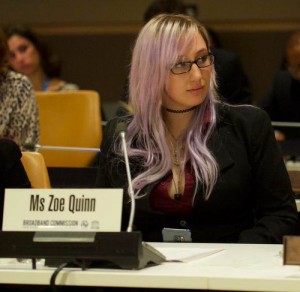Melissa King’s article about the moderation of content on the internet explores the issue of privacy on the internet. More specifically she talks about the effects on comments on the internet and what can be done to avoid those problems. Post Traumatic Stress Disorder is a common ailment that veterans of war suffer. King asserts that PTSD can also affect a person who has been constantly belittled by a bully for a prolonged period of time. She supports her claim with a citation to a psychologist, Caleb Lack, who says that “given what we know about PTSD…I think it’s relatively safe to say that “Yes, you can ‘get’ PTSD from Twitter”…it’s the bullying and harassment that could lead to PTSD or PTSD symptoms not anything inherent to Twitter itself.” There are several ways to combat these abusive experiences that can lead to disorders. One of the most convenient ways is to participate in content blockers. These content blockers can be anything from blocking other users who bother you on social media to muting other users in an online chat room. King explains that “while using content control features is not guaranteed to stop the effects of abuse, they do help and their use should not be disparaged and discouraged.”
Like any issue there are people for the issue and also those who oppose it. This is no exception. The pro content blocking people have their obvious reasons. The victims need to be empowered, content blocking can save lives, etc.. King does not spend much time on the benefits but her bias is very apparent as she tries to disprove all oppoing arguments. Major hate groups such as Gamergate have created a need for blocklists in order for people to avoid users like this. King says that these blocklists receive significant criticism because opponents of content moderation say that they can cause defamation. Some users or groups say that they are added into these mass blocklists unfairly. King pulls in the stance of the creator, Randi Harper, of one of these blocklists to clear confusion. Harper says that the blocklists are not unfair because potential users of the blocklists have to seek out the service, subscribe to it, and download an app. Another major argument, which king dismisses because she thinks it is absurd, is that content moderation is unneeded because people need to toughen up and deal with their problems. King says that if people understood the scope of the victimizing that some people deal with, comments about toughening up would not exist.
King now transitions into talking about the groups, notably women, that deal with these problems more prominently. Women, especially in male dominated industries, face more criticism. She proclaims that this problem is so pervasive that the UN had to host an event to highlight the abuse. The conference included stories of women that have experienced issues. King name drops two women, who I assume relate the most closely to this argument, that have dealt with discrimination and bullying through the technology sector.
King concludes the article by urging the allowance of the use of content moderators. However she also warns that these issues are unique and there is no one universal solution.
